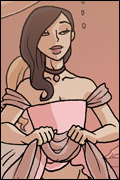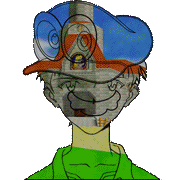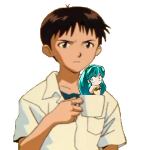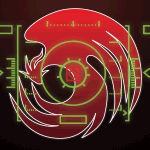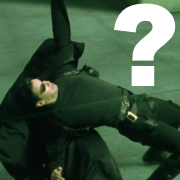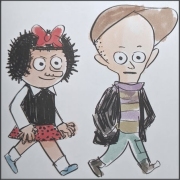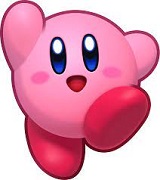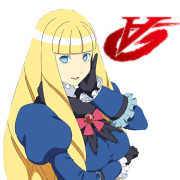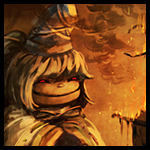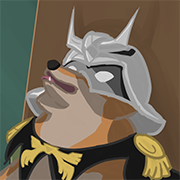|
ImpAtom posted:That actually makes me like it less considering IBO's later overarching theme of "McGillis totally buys the myth and misunderstands drastically." Like "McGillis VIEWS it this way" is fine but the myth being dirty and unpleasant and not at all cool and glamorous would work better for me at least. (Again, something I think the ending does better.) I think that's missing the point. The Calamity War's dark glamour was never a myth. The Hashmal is real. The deaths of a quarter of humanity were real. The mysterious, inimitable strength of the Gundams, which let a rag-tag band of children stand against the world, and which was never equalled by another class of mobile suit, is real. McGillis's main problem is an is-ought one. Yes, humanity once became something other than human in order to fight the aliens it had created, but you have to be pretty profoundly unhappy with humanity as a concept to want to bring those days back again, and most of the rest of the solar system isn't as broken as him. An age of angels and demons doesn't leave much space for actual people. In fact, another bit of dark humour around McGillis is that for all his deliberate attempts to excise his soul, he underestimates how inhuman you'd need to be to bring back the Calamity War. He tries to imitate the Gundam pilots of old, but they were a reaction, a defence mechanism of humanity against something alien. He didn't need to be Agnika Kaeru - he needed to be the Hashmal. Mikazuki, who actually stepped into the realm of the divine for a brief instant, took it into himself, and was forever changed, had rather better luck, becoming a living incarnation of the Hashmal during his final rampage, but in the end, the fragile child at the heart of the alien giant he'd become gave out. In the end, humans beat the divine again, taking away a little more glamour from the world but also making it more liveable for humanity. The age of the gods was glorious, but it stays in the past for a damned good reason.
|
|
|
|

|
| # ? May 10, 2024 10:19 |
|
Just started Turn-A Gundam. "Lol were you checking us out" says 15 year old girl. 
|
|
|
|
Do you think 15 year old girls don't say things like that
|
|
|
|
Raxivace posted:Do you think 15 year old girls don't say things like that Especially to fifteen-year-old boys.
|
|
|
|
Liking it so far. Edit: What the gently caress are those glasses girl dick energy fucked around with this message at 12:57 on Aug 27, 2017 |
|
|
|
Lemon-Lime posted:Season 1 is legitimately great right up until the ending walks back a bunch of clearly-fatal casualties because they were afraid to commit to killing off a bunch of secondary characters. That really isn't fair in hindsight, because it's pretty drat likely they were set up to die right before someone popped their head in the writer's room and said "oh hey, you're getting a second season".
|
|
|
|
My takeaway from IBO was that I wound up hating it so much that I'm not even gonna bother checking out any non-Tomino Gundam ever again. What a loving waste of a talented director/writer team.
|
|
|
|
Srice posted:My takeaway from G-reco was that I wound up hating it so much that I'm not even gonna bother checking out any Tomino Gundam ever again. What a loving waste of a team.
|
|
|
|
What the!?
|
|
|
|
But for real tho that team was able to write a bunch of fine heavily character-driven anime and whatever happened during IBO's production just stifled the hell out of that talent.
|
|
|
|
No, seriously, what the gently caress are those glasses.
|
|
|
|
Srice posted:But for real tho that team was able to write a bunch of fine heavily character-driven anime and whatever happened during IBO's production just stifled the hell out of that talent. No. Honestly I'd say while IBO wouldn't make my top three thanks to 0079, Wing, and Zeta being basically immovable forever, It pretty easily sits in my top five, somewhere around the Unicorn/CCA/08thMS cluster that are all so close I can't straighten them out.
|
|
|
|
I'm basing my statement on having seen the other stuff directed by that team and if I went into IBO having no idea about it and someone told me it was handled by the team behind quality anime like Toradora, Anohana, and Anthem of the Heart, I wouldn't be able to believe them one bit.
|
|
|
|
Neddy Seagoon posted:That really isn't fair in hindsight, because it's pretty drat likely they were set up to die right before someone popped their head in the writer's room and said "oh hey, you're getting a second season". That doesn't make it suck any less
|
|
|
|
PMush Perfect posted:No, seriously, what the gently caress are those glasses. They wrap around the back of his head, rather than connecting over the bridge of his nose. He's just got big enough hair to hide the band.
|
|
|
|
Darth Walrus posted:They wrap around the back of his head, rather than connecting over the bridge of his nose. He's just got big enough hair to hide the band.
|
|
|
|
No one would ever lie on the internet. Don't be ridiculous!
|
|
|
|
PMush Perfect posted:I can't even tell if you're loving with me or not. I am not. That is how Harry Ord's glasses work.
|
|
|
|
Rocket-powered flail. Turn-A, Turn, Turn-A, Turn... Turn-A Gundam girl dick energy fucked around with this message at 14:17 on Aug 27, 2017 |
|
|
|
I haven't watched IBO S2 myself. I know the lack of deaths have been mentioned, but something that also bugged me about the S1 ending was Orga getting away scot-free by treating Tekkadan members as expendable tools just like the adults they used to work for. Naze even told him he did good, IIRC, which was pretty messed up. Really, I wished Biscuit survived to the end and had a falling out with Orga over his actions so that there would've been some kind of consequence from it.
|
|
|
|
Neddy Seagoon posted:That really isn't fair in hindsight, because it's pretty drat likely they were set up to die right before someone popped their head in the writer's room and said "oh hey, you're getting a second season". It does seem that way, but doesn't change what I said - they pulled back from killing people who were obviously set up to die to give the narrative events real weight, and it made s01 worse for it. Except for Gaelio surviving, because that led to the best parts of s02.
|
|
|
|
amigolupus posted:I haven't watched IBO S2 myself. I know the lack of deaths have been mentioned, but something that also bugged me about the S1 ending was Orga getting away scot-free by treating Tekkadan members as expendable tools just like the adults they used to work for. Naze even told him he did good, IIRC, which was pretty messed up. In that case, you may well want to watch S2. No, Biscuit doesn't pull a Mu La Flaga, but he does very much loom over the story.
|
|
|
|
So, how long before some stupid shithead screws up the uneasy peace by trying to kidnap the princess and then accidentally killing her, or something?
|
|
|
|
PMush Perfect posted:Rocket-powered flail. *Mongolian throat singing*
|
|
|
|
Biscuit surviving to Season 2 would have done wonders for IBO I think. Orga really REALLY needed someone who wasn't his praisebuddy to bounce off of. Them killing Biscuit the moment he started to push back was a genuine loss. PMush Perfect posted:So, how long before some stupid shithead screws up the uneasy peace by trying to kidnap the princess and then accidentally killing her, or something? My favorite part of this post is that without context it could refer to like 5 different Gundam shows.
|
|
|
|
ImpAtom posted:Biscuit surviving to Season 2 would have done wonders for IBO I think. Orga really REALLY needed someone who wasn't his praisebuddy to bounce off of. Them killing Biscuit the moment he started to push back was a genuine loss. Biscuit not being present is why everything goes to hell in season 2. Orga knows he needs to hold the reins, but everyone just keeps pushing him to do the reckless option because they've got his back will do whatever he says, and keep telling him as much repeatedly. Biscuit was the only one who would openly naysay the stupid plans and act as a moderating voice in the group.
|
|
|
|
Neddy Seagoon posted:Biscuit not being present is why everything goes to hell in season 2. Orga knows he needs to hold the reins, but everyone just keeps pushing him to do the reckless option because they've got his back will do whatever he says, and keep telling him as much repeatedly. Biscuit was the only one who would openly naysay the stupid plans and act as a moderating voice in the group. It actually gets even worse in S2, because the remaining members of Tekkadan have bought so thoroughly into the "Orga will fix it if he just keeps going" bullshit at that point that the moment Orga comes up short and realizes "gently caress, we need to back up and stop", he gets screamed out for pussying out and dishonoring the dead who have sacrificed everything, which in turn causes Orga to continue barreling down Suicidal Decisions Mountain. Biscuit's death is basically the planted seed of Tekkadan's ultimate demise and it really pays off from a writing standpoint.
|
|
|
|
Lot of bad opinions about the good show that is Iron Blooded Orphans in this thread Except for the poo poo about Naze, he's a lovely character that unfortunately casts a major shadow over much better ones despite barely being involved in the story.
|
|
|
|
The OP for Turn-A Gundam is fantastic, joking aside. It's nostalgic, despite me never actually watching this series before. Runs in the same veins as a lot of very good openings. And yet, I can't stand the ED for more than a few seconds.
|
|
|
|
I'm kind of weird because I quite enjoyed S1 of IBO until i got burned by the ending which made me sour on the season overall in retrospect, and in a clear demonstration of me being unable to learn from my mistakes, had the same experience with S2 except more so since it carried the burden of not only being good by itself but also justifying the ending of S1. Now that some time has passed and I've had the chance to think and digest it a bit I'm going to try to explain some of the issues I have with the show. I'm not going to spoiler tag any of this because I don't want this page to look like a CIA document more than it already does, so if you're concerned about spoilers don't read past this point. First of all, I think the show tremendously suffered from being split into 2 seasons. While I can't know for certain I think it's pretty safe to say that the decision to make a second season was made very late into season 1 considering how the final episode of season 1 walked back a lot of the stuff that happened in the episode right before it, making the ending almost entirely toothless. There are bigger issues than just that though both from a plot perspective (Rustal, arguably the most powerful man in the world not even being mentioned in passing during S1) and more importantly, a thematic perspective. Take Gjallarhorn itself: In season 1 Gjallarhorn is presented as an organization that's so wrapped up in antiquated ideas of nobility that it makes them inefficient and naive in combat. The main reason Tekkadan wins, at least early on, is simply that their fighting is more practical than their opponents'. The only exceptions to this are Mcgillis, Gaelio (eventually) and Ein, who are either trying to reform the organization or intentionally abandon their nobility and eventually humanity in the name of revenge. The leaders of Gjallarhorn are also largely unseen, which reinforces the idea that the problems Kudelia, and by extension Tekkadan, are trying to solve are societal rather than the fault of any single villain. Contrast this with Season 2, and more specifically: Rustal. Rustal is practical, efficient, ruthless and arguably the most powerful person in Gjallarhorn, being both the leader of one of the Gjallarhorn leading families and the commander of their largest fleet. As the main antagonist of Season 2 he is supposed to represent Gjallarhorn, and yet he is almost the complete opposite of the organization as presented in Season 1. Making him a tangible villain also ruins the idea that the problems are societal to some extent, but in fairness that's true of most Gundam, and probably most action shows/movies, shows that attempt this kind of thing. You could argue that the other family leaders are more like how Gjallarhorn is presented in S1 but they're either directly subservient to Rustal (Iok) or barely figure into things, and end up bending to his will in the ending anyway. Another way the show reveals its thematic inconsistency is in the contrast in the treatment between Kudelia and the group of young officers who join with Mcgillis' rebellion. In S1 Kudelia wants to help the people of Mars and the colonies, improve their lives, become their saviors. Her dreams are incredibly idealistic and this is treated as a good thing. Season 1 seems to say "The world may be harsh and unfair but if you hold onto hope and persevere, you can make things at least a little bit better". The officers under Mcgillis on the other hand have this same idealism, but both Tekkadan and the audience sees them as naive dummies being manipulated my Mcgillis. This coupled with Kudelia becoming almost completely irrelevant in Season 2 (another problem with the show) seems to me like the idealism of the first season was lost somewhere in between the seasons. Mcgillis' character is another big problem I have with the show. I really liked him in the first season: He was ruthless, practical, cunning and he had some secret agenda which was my main reason to stick with the show and check out season 2. Him "killing" Gaelio was the only part of the final episode of season 1 I really liked, but unfortunately that was somewhat ruined by Gaelio not dying. Mcgillis reminded me of Ribbons in season 1 of 00, except more active and involved in the plot. Unfortunately much like Ribbons he completely fell flat in the second season when his motivations and agenda were revealed. In season 2 his character is almost completely different. His ultimate plan is incredibly simple and anticlimactic, he becomes ridiculously naive in his interactions with other characters and he suddenly has this great belief in symbols that wasn't present in S1 at all. Much like Rustal was supposed to represent Gjallarhorn but was almost antithetical to how it was represented in S1, Mcgillis, the man who wants to reform Gjallarhorn, ends up just like how it was represented in S1. You could perhaps argue that was the point, that the world he wanted to create was no better than the one we already had, but I don't think that's actually supported by the show and certainly not how he's characterized in the first season. I also think his backstory is in somewhat poor taste. As a rule I don't think you should have sexual violence in fiction unless the work is actually making some kind of point about sexual violence or the plot absolutely requires it. The tragedy of his character would also have been much stronger, i feel, if his adoptive father was actually a good dad but due to his life up to that point he was still unable to let go of his violence and accept that kindness. This is a smaller point but I also feel like Gaelio could have been done better in S2. Apart from him surviving ruining one of my favorite moments of S1 I think his character in S2 is quite good, but there is one thing I think is really stupid: Them keeping his identity secret for so long. In most Gundam shows the masked character is either unmasked very early (Char, McGillis s1) or their face is never shown but we still know who they are, their face doesn't matter (Iron Mask). But in IBO S2 it's treated by the show as a mystery despite the solution being blindingly obvious. The only other times it was presented as a mystery that I can remember are G and Seed, both of which are genuine mysteries that are meant to be surprising, and Seed Destiny which treats it just like IBO S2. The problem is that the show treats it as a mystery but the solution is so obvious that the reveal is incredibly anticlimactic. I spent the first half of S2 expecting some kind of fakeout because why would you make the answer so blindingly obvious and yet still hide it from the audience? The ending is another big problem I have. I remember someone in the IBO S2 thread finding some interview where it was revealed that the ending was changed very late to give us a happier ending, and you can really tell. My personal theory is that the show was supposed to have ended with all of Tekkadan dying, and then Kudelia convincing Rustal to stop and help her reform Gjallarhorn. I can't prove this was the case but I think there's circumstantial evidence that supports it, primarily that Kudelia and Atra were put in a separate location in the third to last episode from the rest of Tekkadan. I believe it was after this episode that the script was changed so that they found the tunnel. If that had been the ending it would still have felt somewhat unearned due to how little screentime Kudelia had in S2, but it was still much better than what we got. Most of Tekkadan surviving feels really strange and sudden after almost all of S2 up to that point has been foreshadowing that they're going to die, and the main villain deciding at the end that actually reform is pretty cool is one of the dumbest walkbacks I've ever seen and makes me question what the whole point of the show was if the most powerful man in the world was fine with reform from the beginning. Some people have said that the ending was supposed to imply that Kudelia just becomes a puppet of Rustal and that the democracy they create is a sham or something to that effect, and while I don't want to insult anyone, I really don't see how that can be the case. Fiction tells us how we're supposed to feel about events not just by the events themselves, but also their cinematography. Mika telling Orga to keep going sounds fine if you were to just read it off the script, but the dark lighting, the lightning in the background and their faces tell us that we're supposed to think this is wrong and they're making a mistake. In the same way I don't see how you can watch the beautiful sunset as soaring music plays while the narrator tells us how finally democracy was formed and think "This is supposed to be a bad ending". If the ending doesn't seem as happy as it appears to you that's not because it's secretly super dark, it's because they failed to make a good ending feel deserved. Finally I want to talk about the show's ultimate theme or message, or rather, how it doesn't have one. As I said the idealism of S1 is gone in S2, but paradoxically we are also denied the more cynical message we would have got if all of Tekkadan died. What the show seems to be going for is that you have to compromise with people you may disagree with in order to affect change, which would be fine (if a little unearned) but how does Rustal compromise? Considering how quickly he changed positions at the end he clearly didn't have any great stake in the status quo, so the only one actually compromising is Kudelia. With that in mind the message seems to be something like "let go of your intentions until you please the people in charge in the hope that they fulfill whatever remains", which is awful. I know Darth Walrus has a theory that the whole show is a metaphor for the rise and fall of the japanese empire. I don't agree with them because I feel like the connections they make are too vague and could just as well be applied to a bunch of other things, but more importantly even if it were true I don't think it's interesting. If fiction to have any purpose more than entertainment (which can be enough of a purpose in itself mind) it needs to have some relevance to the real world as it exists today. Unless it's a dramatization of a real period of history or it has some point to be made about today by talking about the past I don't see the point in talking exclusively about the past. There's a theory that I find far more convincing that the original Gundam was a metaphor for WW2, and while the show was made after WW2 had long since ended, almost everyone in Japan knew someone who fought in that war. What Gundam says in its depiction of Zeon is that while Japan was on the wrong side of history, that doesn't necessarily mean that your father or grandfather is a bad person. This is also the reason why I find Gundam X's ending weak and the discussion of how every char clone is some kind of metacommentary of the original. Fiction talking about fiction talking about fiction is inherently uninteresting to me. Alan Moore said in an interview that he thinks the killing joke is one of his weakest works because a big part of the message is that Batman and the Joker aren't so different, but neither Batman nor the Joker exists, so what's the point? Fiction is a mirror of reality, what meaning is there to make two mirrors face each other?
|
|
|
|
PMush Perfect posted:The OP for Turn-A Gundam is fantastic, joking aside. It's nostalgic, despite me never actually watching this series before. Runs in the same veins as a lot of very good openings. The second ED is the one people remember.
|
|
|
|
Droyer posted:I'm kind of weird because I quite enjoyed S1 of IBO until i got burned by the ending which made me sour on the season overall in retrospect, and in a clear demonstration of me being unable to learn from my mistakes, had the same experience with S2 except more so since it carried the burden of not only being good by itself but also justifying the ending of S1. Now that some time has passed and I've had the chance to think and digest it a bit I'm going to try to explain some of the issues I have with the show. I'm not going to spoiler tag any of this because I don't want this page to look like a CIA document more than it already does, so if you're concerned about spoilers don't read past this point. I think the relevance of the Imperial Japan metaphor is the opposite of that in the original Gundam. That was meant to look at World War II, an event engraved in the hearts of the Japanese populace, from another perspective. IBO, on the other hand, exists at a time when the Empire is beginning to drift out of living memory. Nobody alive today remembers the Meiji Restoration or the Russo-Japanese War, and the servicemen of World War II are all well past the average lifespan. Despite this, though, the fifty-nine years it existed for were immensely important to the shape of modern Japan, and if you want to understand the country, you need to understand the Empire. IBO is, I believe, an attempt to recapture the emotion of those times, to make that vital history immediate again so that people who've never experienced it can understand it. As for Rustal, he's pretty clearly a monster created by Tekkadan. The Arianrhod Fleet had a different commander at Dort, with a different appearance and a much more conventionally arrogant, cruel personality. It's very, very heavily implied that Rustal came in after Kudelia discredited his predecessor, and exists as a moderniser responding to Tekkadan's reshaping of the solar system. On a subtextual level, he's the embodiment of the Western powers' spike in competence after Japan and a dozen other new threats kicked them in the teeth during disasters like the Russo-Japanese War.
|
|
|
|
This is a really good post in general that is a lot to digest, so I'll just address some of your specific points that I'd like to weigh in on. Rustal not being mentioned in S1 is definitely a writing mistake, but to me his relatively sudden appearance helps square a lot of issues with how S1 Gjallarhorn is written. We're repeatedly shown even in S1 that IBO is a universe where self-interest and practicality rule the roost; child slave soldiers are in wide use because they're cheap, effective and expendable, an organized crime syndicate is allowed to effectively rule half the solar system because it would be inconvenient to oppose them, and an entire planet is held in effective indentured servitude because it's economically profitable. In that setting, a Gjallarhorn run entirely by clowns like Carta would make little sense, in my opinion; there's no way that kind of organization would be smart enough to maintain absolute control and power against antagonistic political organizations like the economic blocks or Teiwaz if they were all romantic idiot dupes. To me, it makes perfect sense that while the organization is full of people who are thoroughly up their own rear end with romantic knightly ideals, the status quo is being maintained by smart, effective individuals like Rustal and McGillis who understand the actual practical things that need to be done. Rustal not being introduced until S2 can also be interpreted as the widening of the scale of conflict; in S1, our viewpoint characters, Tekkadan, were simply not important enough to register on someone like Rustal's radar. After the events of S1, they suddenly catapult onto the world stage and are a significant player in events, albeit a small one; this necessitates the personal involvement and attention of someone of Rustal's power. Kudelia basically being written out of S2 kind of sucks, but she had already been effectively written out of the latter part of S1. After the Dort speech, she effectively does nothing in the plot until her final speech at Edmonton, regressing into the role of a McGuffin to be shuttled from point A to point B by the protagonists. It's unfortunate but it's not just a sin of S2; it's basically a symptom of them wanting to tell a story about the rise and fall of Tekkadan(and McGillis) due to hubris and an optimistic, moderating influence who favors incremental change doesn't really fit that bill at all. As for McGillis's officers, it's not inconsistent for the show to portray them as dumb and wrong. Kudelia's speech at Edmonton and the fact that everything in the world generally got *worse* after the fact in the short term presents a pretty strong argument that pushing for sudden, violent change(such as a revolution) is frowned upon by the show. Kudelia wanted to save everyone but she really quickly realized that the way that needed to be done was in a slow and low long term way because doing it the quick way doesn't work. On McGillis, McGillis being a shallow manchild isn't really contradicted by S1 at all because he never actually expounds upon his plans in S1. In S1, he repeatedly talks about "reforming" Gjallarhorn, but he never talks about what he actually means by that; he smugly sneers a bit at the inefficiency and incompetence of some of the existing branches of Gjallarhorn like the Mars branch he is initially sent to audit, but he never really enumerates a desire to help the downtrodden, overthrow the social order, install more effective officers, or anything of that nature. It's just "let's reform Gjallarhorn", which could mean pretty much anything. On Gaelio in S2, I don't think they really intend it to be a mystery to the viewer; it's the same voice actor for a guy piloting a purple Gundam working against McGillis, which is about as thin of a disguise as Clark Kent. It's meant to be a mystery to other characters, specifically to let Julieta have a conversational relationship with him free of any prejudice based on his name and past, and to allow him that one "surprise, motherfucker" moment that sends McGillis entirely off the rails, which is one of the very first times in the show you see McGillis actually wrongfooted. That's pretty much it. Rustal's approach to reform was actually one of the things I felt was pretty well done about the ending. He's consistently portrayed as intensely pragmatic; he's interested in stability and the rule of law. The present political and economic situation led to the creation of destabilizing influences like McGillis and Tekkadan, as well as the flourishing of gigantic armed criminal and pirate groups, which require substantial amounts of unrest and military conflict to put down. Something needs to change to prevent these sorts of destabilizing factors from coming into being; therefore, embracing a limited set of reforms while still placing yourself in the supreme position of power to moderate how those reforms take shape makes perfect sense for Rustal. His motivations don't need to be altruistic or benevolent at all for this to work narratively. Him working with Kudelia can also be viewed as entirely cynical and practical, because she's still a powerful symbolic figure whose cooperation would lend his own reformist overtures a lot of weight with dissenting factions who would otherwise be interested in armed resistance against Gjallarhorn in the future(such as the workers of Dort, the people of Mars, or the rebels who worked with McGillis) because it would then appear that Rustal is willing to work with someone who should theoretically oppose him. Kudelia isn't a puppet in this scenario, she's just practical; she's working with an incredibly powerful leader who is receptive to the idea of change for the sake of stability, and it's really easy for her to push things that alleviate an immense amount of suffering(such as the human debris ban) by selling them as law and order to Rustal. It's a mutually beneficial relationship rather than an exploitative one because both sides are getting something incredibly important to them out of it. The theme of S2 to me is pretty much that sudden upheaval or revolution is a disastrous and terrible way to attempt to change the world and that working within the system is the way to go; Tekkadan and McGillis's utterly futile fates, the positive endings for basically everyone who refused to get involved in Tekkadan's idiocy in S2(McMurdo, Azee, Kudelia), and Rustal's ultimate victory and the decisions he made at the end push the idea that while optimism and idealism can take you so far, without moderation and temperament they can be meaningless or even actively destructive.
|
|
|
|
Maybe don't openly spoil major parts of a 50-odd episode show, in detail, in response to several people asking "is this worth watching?"
|
|
|
|
Kanos posted:This is a really good post in general that is a lot to digest, so I'll just address some of your specific points that I'd like to weigh in on. I think it's not quite that - it's more that working outside the system will lead to lasting change, as you shock the world into action, but abandoning the rules of civilisation will isolate you enough from humanity to both morally degrade you and make you easy to villainise. So McGillis and Tekkadan did trigger the healing of the world, but ended up mostly dead and reviled as monsters, with the only survivors being people like Ride, who are continuing down the same path (the killing of Nobliss is a big hint that socially-unacceptable violence gets results in IBO) to their own implied destruction and villainisation, and people who were able to preserve their humanity by maintaining some measure of distance from the cause. By contrast, internal reformers like Kudelia are limited by the willingness of the state to indulge them (see also, when Nobliss yanks her funding), and cannot produce rapid or meaningful enough change to satisfy the downtrodden (see also, Tekkadan still existing and aiming for the big score after her reforms), but will be able to keep their humanity and be lionised by the world as the socially-acceptable face of their movement. The only people who are guaranteed to be OK are the ruling elites themselves, and they will never help anyone else on their own - they need to be persuaded into action. IBO is a really angry show, with obvious applicability even beyond its central metaphor. It's not about providing answers, but raising questions, and that's fine - getting people to think about this stuff and realise how hosed-up something is is the first, essential step to a solution. 1984 doesn't tell us how to beat Ingsoc - it simply shows us a warning.
|
|
|
|
Good discussion, but I just wanted to toss in one more thing. Kudelia's idealism is explicitly a problem in season 1. It's not purely a problem, since it drives her to help others, but she doesn't get things done until she gets blood on her hands (literally and metaphorically) at Dort, making deals with a man who nearly had her murdered (and who killed one of her closest friends) to get things done. Pure idealism gets people killed on IBO. And Kudelia growing past it is an important part of her season 1 arc.
|
|
|
|
The Muffinlord posted:The second ED is the one people remember. Turn A's second ED is so loving good.
|
|
|
|
Gundam X finally got its Blu-Rays announced. Time to start saving up.  EDIT: God drat it they hosed up the GX's Satellite Cannon on the promotional poster.  BlitzBlast fucked around with this message at 08:32 on Aug 28, 2017 |
|
|
|
BlitzBlast posted:Gundam X finally got its Blu-Rays announced. hahaha, that's the positioning for the Gundam X Maoh
|
|
|
|

|
| # ? May 10, 2024 10:19 |
|
 my colony's also named Dort
|
|
|




